
Kód: 02703924
Making Hispanics
Autor G. Cristina Mora
How did Puerto Ricans, Mexicans, and Cubans become known as "Hispanics" and "Latinos" in the United States? How did several distinct cultures and nationalities become portrayed as one? Cristina Mora answers both these questions an ... celý popis
- Jazyk:
 Angličtina
Angličtina - Vazba: Pevná
- Počet stran: 256
Nakladatelství: The University of Chicago Press, 2014
- Více informací o knize

3076 Kč
Dostupnost:
50 % šance Máme informaci, že by titul mohl být dostupný. Na základě vaší objednávky se ho pokusíme do 6 týdnů zajistit.
Máme informaci, že by titul mohl být dostupný. Na základě vaší objednávky se ho pokusíme do 6 týdnů zajistit.Prohledáme celý svět
Mohlo by se vám také líbit
-

Fauna and Flora of Wisconsin. by I.A. Lapham.
594 Kč -

SAGE Handbook of Personality Theory and Assessment
3713 Kč -

Production and Processing of Healthy Meat, Poultry and Fish Products
5094 Kč -

Women's Travel Writings in Italy, Part I Vol 3
5861 Kč -

Political Beethoven
1257 Kč -

Deutschbuch
899 Kč -

Blumen und Schmetterlinge - Ausmalbuch fur Erwachsene
289 Kč
Darujte tuto knihu ještě dnes
- Objednejte knihu a zvolte Zaslat jako dárek.
- Obratem obdržíte darovací poukaz na knihu, který můžete ihned předat obdarovanému.
- Knihu zašleme na adresu obdarovaného, o nic se nestaráte.
Informovat o naskladnění knihy
Zadejte do formuláře e-mailovou adresu a jakmile knihu naskladníme, zašleme vám o tom zprávu. Pohlídáme vše za vás.
Více informací o knize Making Hispanics
Nákupem získáte 308 bodů
 Anotace knihy
Anotace knihy
How did Puerto Ricans, Mexicans, and Cubans become known as "Hispanics" and "Latinos" in the United States? How did several distinct cultures and nationalities become portrayed as one? Cristina Mora answers both these questions and details the scope of this phenomenon in Making Hispanics. She uses an organizational lens and traces how activists, bureaucrats, and media executives in the 1970s and '80s created a new identity category - and by doing so, permanently changed the racial and political landscape of the nation. Some argue that these cultures are fundamentally similar and that the Spanish language is a natural basis for a unified Hispanic identity. But Mora shows very clearly that the idea of ethnic grouping was historically constructed and institutionalized in the United States. During the 1960 census, reports classified Latin American immigrants as "white," grouping them with European Americans. Not only was this decision controversial, but also Latino activists claimed that this classification hindered their ability to portray their constituents as under-represented minorities. Therefore, they called for a separate classification: Hispanic. Once these populations could be quantified, businesses saw opportunities and the media responded. Spanish-language television began to expand its reach to serve the now large, and newly unified, Hispanic community with news and entertainment programming. Through archival research, oral histories, and interviews, Mora reveals the broad, national-level process that led to the emergence of Hispanicity in America.
 Parametry knihy
Parametry knihy
Zařazení knihy Knihy v angličtině Society & social sciences Society & culture: general Social groups
3076 Kč
- Plný název: Making Hispanics
- Autor: G. Cristina Mora
- Jazyk:
 Angličtina
Angličtina - Vazba: Pevná
- Počet stran: 256
- EAN: 9780226033662
- ISBN: 022603366X
- ID: 02703924
- Nakladatelství: The University of Chicago Press
- Hmotnost: 454 g
- Rozměry: 60 × 90 × 18 mm
- Datum vydání: 23. April 2014
Oblíbené z jiného soudku
-

Women Who Run with the Wolves
238 Kč -

Freedom Writers Diary
368 Kč -

Think Like a Monk
441 Kč -

Orientalism
306 Kč -
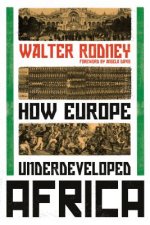
How Europe Underdeveloped Africa
515 Kč -

Desert Flower
278 Kč -

Why Does He Do That?
427 Kč -

Letters to a Young Muslim
303 Kč -
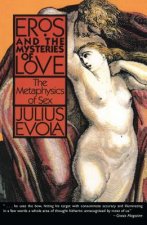
Eros and Mysteries of Love
426 Kč -

Puer Tea
937 Kč -

Life After Darkness
520 Kč -

Womanhood
544 Kč -

Complete Book of Pilates for Men
447 Kč -

JFK - 9/11
740 Kč -

Sword of No-sword
646 Kč -
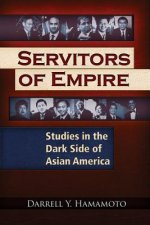
Servitors of Empire
478 Kč -

Gypsy Identities 1500-2000
1641 Kč -

Colloquial Yiddish
1682 Kč -

Gerotranscendence
3473 Kč -
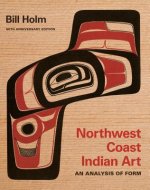
Northwest Coast Indian Art
721 Kč -

Qur'an
810 Kč -
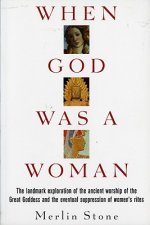
When God Was A Woman
496 Kč -

The Mastery of Love
309 Kč -

Vintage Menswear
435 Kč -
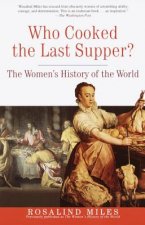
Who Cooked the Last Supper?
427 Kč -

Women Who Run With The Wolves
410 Kč -

The Way of Men
334 Kč -

The Autobiography of Malcolm X
225 Kč -

Second Sex
410 Kč -

Goddesses in Everywoman
303 Kč -

Talking with Female Serial Killers - A chilling study of the most evil women in the world
276 Kč -

Intellectuals and Society
538 Kč -
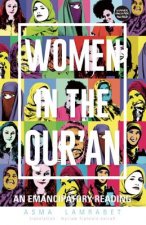
Women in the Qur'an
493 Kč -

Erotic Bondage Book
367 Kč -
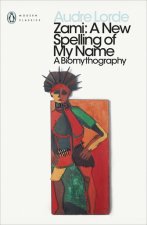
Zami
286 Kč -

Nine Years among the Indians, 1870-1879
618 Kč -

Dark Emu
410 Kč -

Childhood and Society
394 Kč -

Happy City
303 Kč -

The Male Nude
481 Kč -

The Bell Curve
464 Kč -

We Should All Be Feminists
213 Kč -
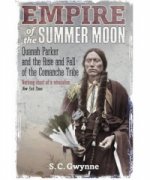
Empire of the Summer Moon
357 Kč -

Radium Girls
276 Kč -

Dance of Anger
276 Kč -

Beauty Myth
357 Kč -

Muqaddimah
543 Kč -

TROUBLEMAKER
363 Kč -
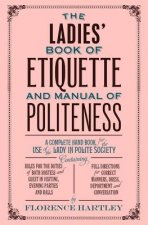
Ladies' Book of Etiquette and Manual of Politeness
306 Kč
Osobní odběr Praha, Brno a 12903 dalších
Copyright ©2008-24 nejlevnejsi-knihy.cz Všechna práva vyhrazenaSoukromíCookies


 Vrácení do měsíce
Vrácení do měsíce 571 999 099 (8-15.30h)
571 999 099 (8-15.30h)